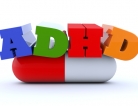Attention Deficit DisorderInfo Center

ADHD Medications: What You Should Know
Are you treating attention-deficit hyperactivity disorder (ADHD) with medication? Here's all you need to know about the available treatment options.

Women Who Use ADHD Meds: A Growing Group
The number of women who take medication for attention deficit hyperactivity disorder (ADHD) has sharply increased in recent years, according to the Centers for Disease Control and Prevention (CDC).
Among Teens, Antipsychotics May Be Too Common
Mental illness consists of an array of complex and hard-to-pin-down disorders, but avoiding misdiagnosis can be crucial to treating it properly.
ADHD Treatment: Too Much Medication, Too Little Therapy
All children have those days when they’re bouncing off the walls, but kids with ADHD may need more help than average to manage their behavior. And the kind of help they get may make a big difference in their health.
ADHD Medicines May Not Stunt Growth
ADHD is often treated with stimulants, which some researchers and parents are concerned could limit children's growth. But new research may relieve those concerns.
Exercise May Enhance Attention Span in Young Adults
Research has shown that exercise can improve health and raise mood, but the benefits might not stop there. New research suggests exercise may improve attention span.
ADHD Risk from Smoking in Pregnancy
It's pretty common knowledge that smoking isn't good for you, and smoking during pregnancy isn't good for either of you.
AAP Issues Statement on ADHD and Substance Abuse
Even though ADHD (attention deficit hyperactivity disorder) can be treated with stimulant medications, those who have ADHD are at higher risk for substance abuse.
Looking Closer at ADHD and Obesity
Attention deficit hyperactivity disorder (ADHD) may be well known, but there is still a great deal that scientists don't know about it.
Kids' ADHD Doesn't Always Last
Just because a child is diagnosed with attention deficit hyperactivity disorder (ADHD) when they're young doesn't mean they continue to show symptoms of the disorder later in life.
